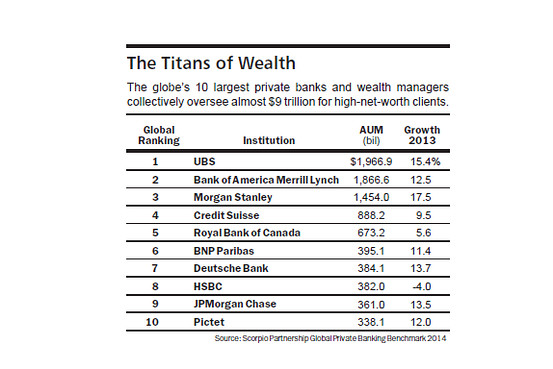Contents:


The concept of “Materiality’ is relevant from the recipient’s point of view and not from that of the company. 11.2 The term ‘material’ needs to be defined in terms of percentage. In view of the Committee, 10% or more of recipient’s consolidated gross revenue / receipts for the preceding year should form a material condition affecting independence.
Continued worries about the health of the US regional banks, which dragged Wall Street down on Thursday night, also contributed to declines. Sebi chief also highlighted the importance of Stewardship Code for institutional investors and ESG framework for companies. From around 5-6 per cent women on boards in 2014, the number increased to 12 per cent within just a year in 2015 for top 500 companies. The number has been steadily increasing year-on-year and stands at around 17 per cent for top 500 companies at present.
Advent managing director talks about dealmaking in 2023 – Axios
Advent managing director talks about dealmaking in 2023.
Posted: Tue, 02 May 2023 16:37:08 GMT [source]
A Managing Director of a company is also included in this list of officers who are liable for the defaults and lapses of the company. The other officers in this list are Whole-time Directors, Manager, Company Secretary and certain other specified persons. 34.1 Stakeholders / Board look towards certain Key Managerial Personnel for formulation and execution of policies and to outside independent professionals for independent assurances on various compliances.
Indian Indices
Thus, a conflict arises in case of banking companies that are listed entities and would be hit by section 203 of the Companies Act, 2013 and a clarity on this position is urgently required. Both positions are usually appointed by the board of directors or shareholders. A Managing Director is usually appointed by the board of directors, while a Whole Time Director is appointed by the shareholders of the company. The Managing Director of a company oversees the function and performance of different departments. They also look after the daily performance and functioning of the departments or managers under them. Oftentimes the Managing Director is part of the board of directors.

The Committee was of the view that there should be a clear recognition of vital issues for which Board discussion in the meeting of the Board should be mandatory. These matters should not be left to Resolution by circulation since this practice is open to abuse. The suggestions made in the Companies Bill, 2003 may be taken as the basis.
IT Services (Innovative Bharat)
This should normally be expressly negated by the Articles, if the intention is not to give the Chairman a casting vote. Under Section 193 of the Act, every page of the minute book and the minutes of the proceedings have to be signed and dated by the Chairman and thus he can choose to initial his version when a contest begins between the parties. Once this is done there is a presumption that the meeting has taken place, has been duly called and the proceedings as recorded in the minutes are deemed to be valid.
Parent & Youth Resource Fair Connects Families, Teens to … – Philadelphia Water Department
Parent & Youth Resource Fair Connects Families, Teens to ….
Posted: Thu, 04 May 2023 15:52:16 GMT [source]
A Managing Director is typically the highest-ranking executive in a company, while a Whole Time Director is a member of the company’s board of directors. The main drawback of making such a separation may be that the enhanced performance of the board may reduce. An independent chairperson may be deprived of the intricate knowledge of the company as that which may be employed by the CEO cum Chairperson. What status to a disqualified managing director of a public limited co. to appear before the court of law in a suit instituted by him on behalf of the co.
Companies are required to appoint a whole-time director
Sometimes, due to presence of celebrity directors, the general public gets attracted to invest without heed to the merits of the issue. This is particularly so when such personalities are given a ‘larger-than-life’ image by the media. The Indian public, newly exposed to capital market may easily be misled. Companies may also raise funds behind such a veneer and later on not use them for the avowed purpose. Therefore, to lay down more responsibilities on companies seeking public subscription, they should be required to preserve the composition of the Board of Directors for two years or till the procured funds are utilized in accordance with the objectives stated in the prospectus, whichever is earlier. In case the director resigns from such a company, his liability under the prospectus including utilization of funds should continue till the above period.
Further you can also difference between chairman and managing director TDS returns, generate Form-16, use our Tax Calculator software, claim HRA, check refund status and generate rent receipts for Income Tax Filing. They are not required to be present and devote all their time to the company’s affairs. AppointmentAppointed by company shareholders or nomination committee through the letter of employment. In the UK and Australia, the debate has tilted in favour of separating the two posts. Germany and Netherlands have a two-tier board structure, separating the roles of board and the management. Globally too, Sebi chief said that the needle seems to be moving more towards the separation of chairperson and MD/CEO roles.
After 2020, SEBI may examine extending the requirement to all listed entities with effect from April 1, 2022. On the other hand, a “chairman” has neither been defined in the Act nor been included within the ambit of KMP. However, post the Companies Act, 2017, it has been clarified that he may be designated as a KMP by the Board. The voting rights of a Managing Director vary depending on the company’s bylaws.
Mayor Announces Resignation of Kathryn Ott Lovell, Commissioner … – Philadelphia Water Department
Mayor Announces Resignation of Kathryn Ott Lovell, Commissioner ….
Posted: Thu, 04 May 2023 17:03:23 GMT [source]
However, such re-appointment cannot be done earlier than one year before the expiry of the current term. Thus, a company can re-appoint the managing director for another term in the last year of his/her current term. The managing director can be re-appointed for an additional term of five years. They manage the company’s activities and engage in high-level responsibility. Executive directors represent the senior management staff of a company.
5.4 Every Company should have at least one director resident in India to ensure availability in case any issue arises with regard to the accountability of the Board. An MD, among other things, oversees the company’s budget and allocates its resources, develops strategic business plans for attaining the company’s goals, and ensures that the company’s policies comply with industry and legal regulations. In this post, we will discuss the function, responsibilities, and qualifications for becoming a company’s managing director. The company should make the necessary entries in the director and key managerial personnel register and the register of contracts in which the directors are interested in the Form MBP-4.
They have management responsibilities and are appointed as the CEO, CFO, MD, etc. Listed entities were initially required to separate the roles of chairperson and MD/CEO from April 1, 2020 onwards. However, based on industry representations, an additional time period of two years was given for compliance. However, the fact that even though Ms. Kochhar was not the de jure chairman of the credit committee and still loans which reeked of conflict of interest were approved by the said committee showcases the power that Ms. Kochhar exercised over the committee by virtue of being CEO/MD. Thus, even though a separate chairman may have been appointed by ICICI Bank, this transaction shows that Ms. Kochhar continued to be the de facto chairman and surpassed the LODR Regulations relating to conflict of interest so as to easily get the loan sanctioned as per her whim. Had the credit committee been chaired by a ‘separate’ and ‘independent’ chairperson, the loan would never have been sanctioned or at least Ms. Kochhar should have been recused from the committee for that transaction.
In simple terms, a Managing Director is an individual who is responsible for administering the daily operations of a company. He is also liable to plan, control, and direct the company’s functioning. On the other side, a Whole Time Director includes a director who is in the company’s whole-time employment, commits all of his time & attention to the company’s affairs in question, and has a major personal interest in the company as their income source.
Both positions may be involved in the management and supervision of the company’s operations. Both positions may be involved in making strategic decisions for the company. Both positions typically have a significant level of responsibility and authority within the company.
Potential for personal and professional growth and development. Executive pay is decided by a corporate board, meaning a CEO who is also chair votes on their own compensation—a clear conflict of interest. Thank you for your interest in the Chicago Booth ADP – India.
- They may be less accessible to employees, as they are not typically involved in day-to-day operations.
- The Companies Act, 2013 (‘Act’) defines a managing director as a director entrusted with substantial powers of managing the company affairs by virtue of either an agreement with the company, articles of association or a resolution passed in its general meeting or board of directors.
- Although these two terms can be confusing when it comes to one’s roles and responsibilities, there are distinctive differences between the two.
- Decision on how to remunerate directors should be left to the Company.
- The Chairman has been held to have the power to expel a member from a meeting if the Chairman feels such a member seriously interferes with the conduct of the meeting, although appropriate warnings should first be given by the Chairman.
However, a person above 70 years can be appointed as a managing director by passing a special resolution in the general meeting after obtaining the shareholders’ approval. In such a case, the explanatory statement annexed to the notice for passing such a resolution should state the justification for appointing such a person. Non-executive directors benefit the company as they are driven by the company’s best interests in mind and assist in monitoring activities without any bias. It helps to improve the overall quality of decision-making. They also bring the expertise required to enhance the performance of the business. It is essential to have non-executive directors as they are external directors who bring objective insights to the company’s decisions and ensure that the board remains honest and loyal, especially when there is a conflict of interest.
It is important to note that the prerequisite for the appointment of the Managing Director is that he must first be appointed as a director of the company. However, in lieu of the powers vested in him , he cannot be equated with an ordinary director. Moreover, a Managing Director can resign in the capacity of a Managing Director and continue to be the director of the company. The Committee considered the concept of exclusion of interested shareholders from participation in the General Meeting in events of conflict of interest.
In the case of listed companies, it should submit the disclosure of such an appointment to the stock exchange within 24 hours from the board meeting date and post it on its website within two working days. Recently, former bureaucrat Girish Chandra Chaturvedi has been appointed as non-executive part-time chairman of ICICI Bank, effective July 1, 2018, for a period of 3 years. However, in the absence of adequate powers of a chairman, one can only hope that he can efficiently ensure a resolution of the ongoing crisis. This effectively means that as per the Banking Regulation Act, 1949, the chairman can exercise the dual role of a chairman and an MD when he has been appointed on a whole-time basis.
According to Section 2 of the Act, 2013, Whole-Time Director includes a director in the whole-time employment of the company. This definition is inclusive and refers to a director who has been in employment with the company on a full-time basis & is entitled to receive remuneration. To protect the shareholders of a listed company that opts to de-list, one buy-back offer by the company should be mandated within a period of 3 years of its de-listing from all the stock exchanges in India. Appropriate valuation Rules for this purpose should be prescribed.
In some companies, the Managing Director is answerable to the company’s shareholders in matters that regard the company’s future. Managing Director is a director who is entrusted with substantial powers of management of the affairs of the company. Here, MD may not has whole powers without day to day control of the Board. It means unlimited decision-making powers in his entrusted area.
The extent of the indemnity is limited to placing the funds of the company at the disposal of the officer to reimburse him for the costs incurred in his defence, after he has been acquitted or discharged. There are, however, three exceptions to this rule, which allow the company to incorporate such a clause in its Articles of Association indemnifying such an officer against a liability. The provision dealing with officer in default concerns itself with violations under the Act alone. Violations of other legislations will be covered by the procedures given in those legislations or by general principles of criminal law which require proof beyond reasonable doubt. Under Section 59 of the Act, default in complying with Sections 57 and 58 which deal with a statement made by an expert in a prospectus, would result in the company and every person who is knowingly a party to the issue of such prospectus being punishable with fine which may extend to Rs.50,000.